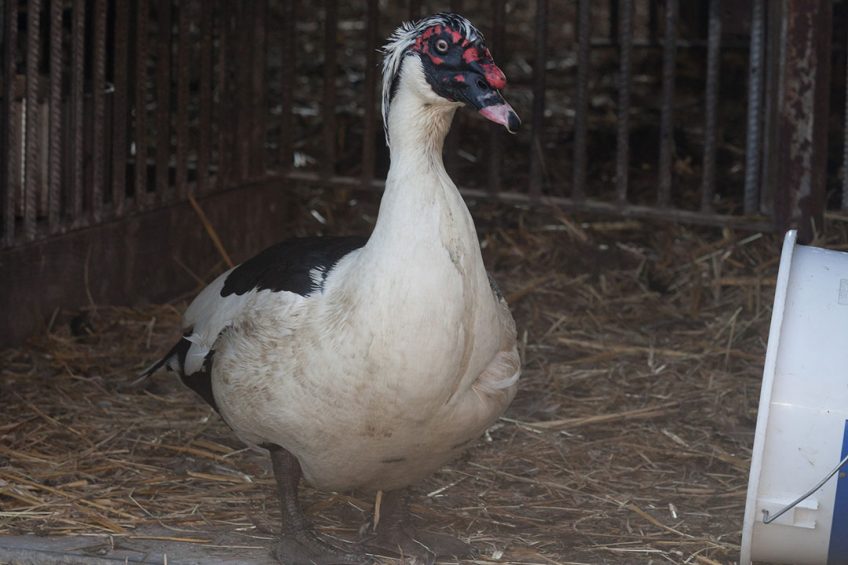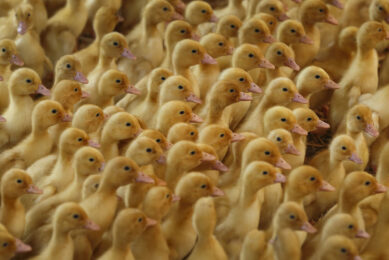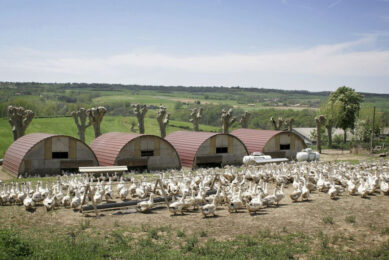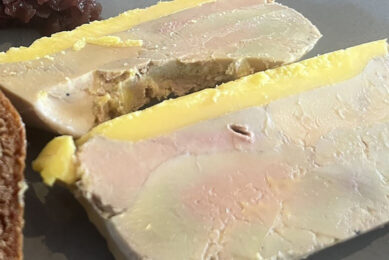In-ovo sexing of Muscovy and Mule duck eggs

From the start of 2021 duck breeding company Grimaud Frères will introduce in-ovo sexing for Muscovy and Mule duck eggs on a commercial scale. The last 5 years the company researched the Lunix sexing solution to come up with a viable and welfare friendly way of sexing birds in the early stage of incubation.
In France, in the duck farming branch (Mule and Muscovy species), only the Mule male and 50% of Muscovy female are raised. Consequently, the future male ducklings must be selected before hatching to avoid having to eliminate the female ducklings after they have hatched. In January 2020, Didier Guillaume, French Minister for Agriculture and Food affirmed his commitment to ending male chick crushing in the laying hen branch at the end of 2021.
He did not set a precise date for ending the practice in the duck field, because at the time there was no technology available to enable this. Grimaud Frères, a business based in Cholet, which features among the world leaders in genetic selection for breeding ducks, rose to the challenge and developed the Lunix process, an entirely French innovation. This is a major step forward in terms of animal welfare: Lunix will make it possible to save more than 30 million female ducklings per year. Operational from the start of 2021, this solution pre-empts the upcoming regulation. The French duck field can adopt a new standard for animal welfare, which will enter into production at the start of 2021.
 Ducks on the front line of eco-friendly pest control
Ducks on the front line of eco-friendly pest control
A wine farm in South Africa has an enthusiastic team of over 1,600 Indian Runner Ducks. Integral to the quality of their wines, the ducks form part of a natural pest control solution.
The Lunix sexing solution has the advantage of being non-intrusive: it makes it possible to detect the sex of future ducklings while still in embryonic stage without piercing the egg. This technique provides all the health guarantees. The process makes it possible to sex the Mule ducklings on the 9th day; in waterfowl species, the embryo’s sensitivity is known to be active only after the 15th day. A spectrometric technique linked to an artificial intelligence and automatic learning device makes it possible to recognise the sex of the duckling in the egg using a camera, based on programmed scenarios in the form of algorithms that analyse the embryo’s eye colour: light for females and dark for males.
 Investment grows in technology to solve male chick culling
Investment grows in technology to solve male chick culling
Industrial company Evonik has become the latest firm to provide investment support to the poultry sector’s bid to solve the issue of male chick culling.
“After 5 years of research and development on the subject, we are now happy to be able to offer our clients an innovation that strengthens our commitment to animal welfare,” said Yann Le Pottier, general manager of Grimaud Frères. Mule and Muscovy duck farmers (95% of French production) could benefit from this technique to become available from the start of 2021. The Euralis cooperative, a major player in duck production in France, represented by Bruno Traverse, the general manager of their duck field, said: “Our cooperative is committed to continually improving our farming methods and animal welfare, we are thrilled with this progress which meets the expectations in today’s society, and we will continue to collaborate closely with the Grimaud Frères teams as the innovation is rolled out.”












